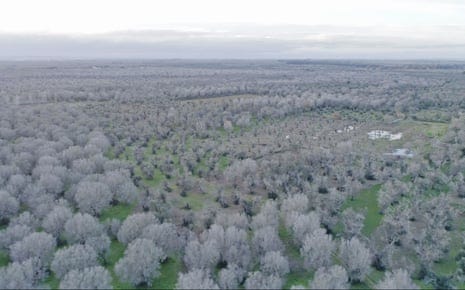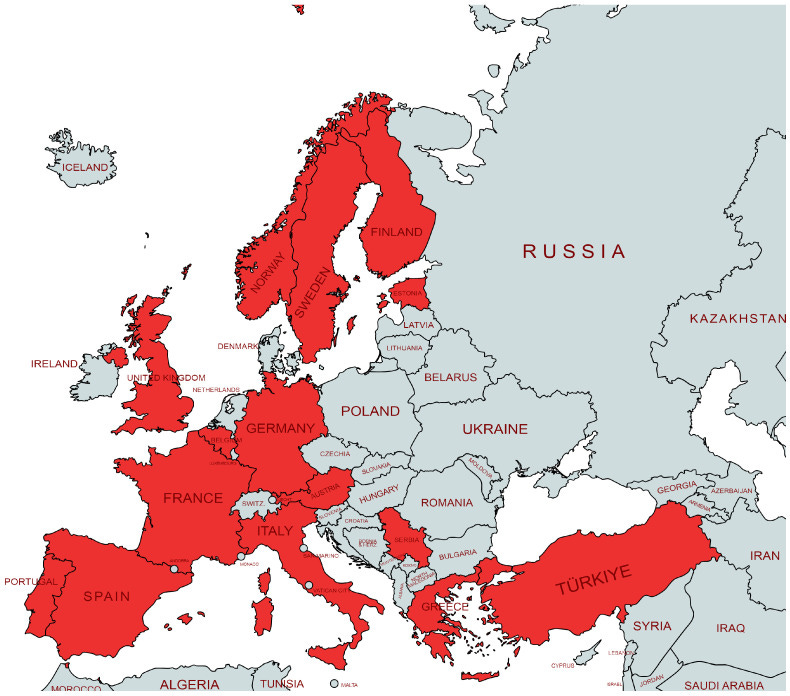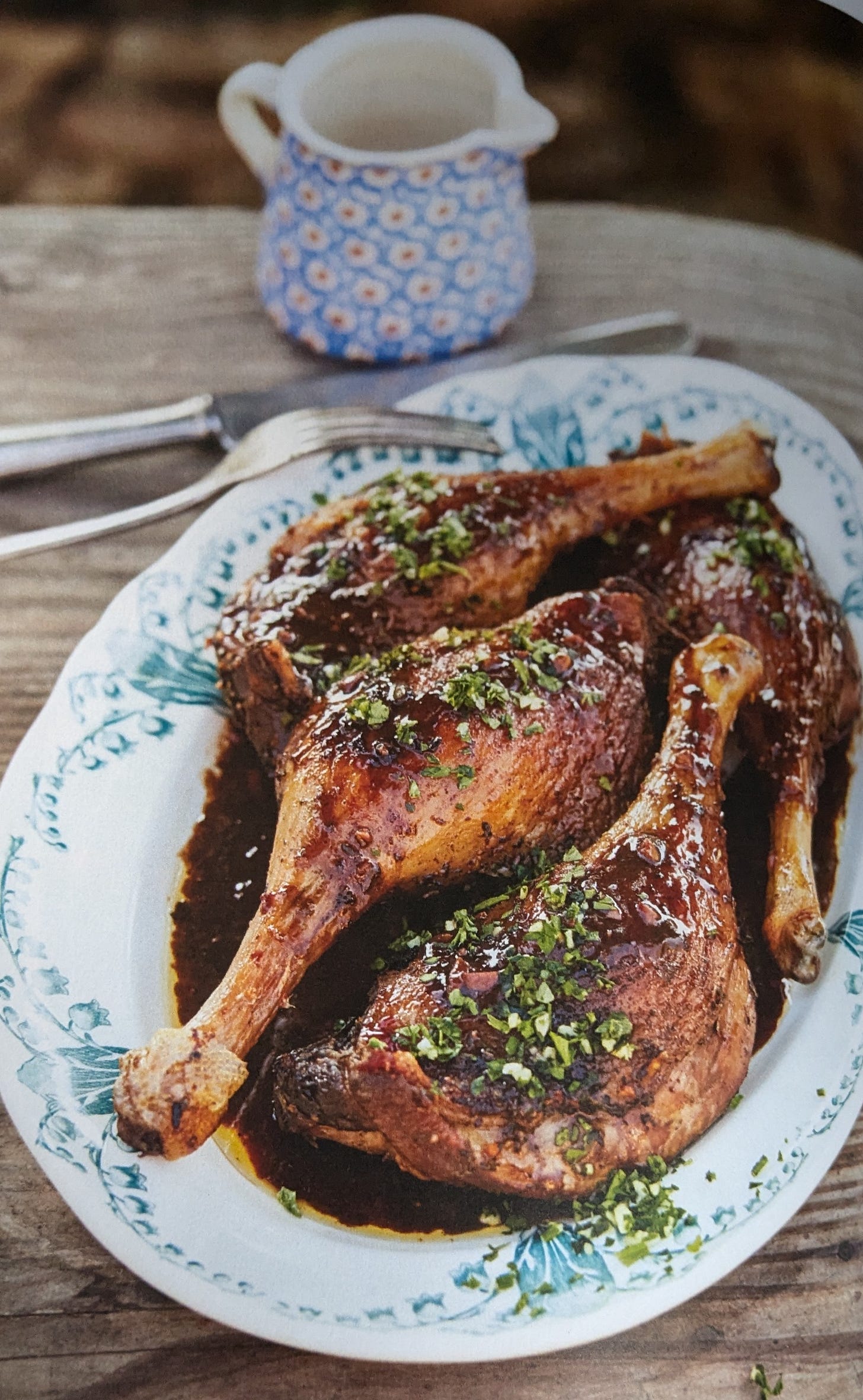
Until recently, I never ‘got’ blueberries. In both senses. They just came across as highwayman cloak-coloured beads of innocuous sweetness not worth spending money on. But I have been converted. Not by the regular berries of hotel breakfast buffets positioned next to the big bowl of yogurt, nor by the contents of an uncrushable plastic punnet from a supermarket chain.
My Damascene moment was provoked by watching a discerning young person* steadily demolish with focused determination a bulging sack of blueberries, each one almost as large as an Elizabeth Taylor pearl. They came from Trader Joe’s, the more affordable American supermarket chain owned by the same parent company as similarly reasonable Aldi. The blueberries he generously proffered burst with a flavour that had been so elusive in the store varieties I’d bought elsewhere as to have made no impression.
If you're a fan of blueberries, you had better eat as many as you can, as often as you can. Experts predict the blueberry is facing extinction.
The blueberry is a native American fruit, introduced into Europe in the 1930s. There are two varieties - the wild lowbush and the cultivated highbush. US blueberries account for 40 percent of the world’s supply. Strains of Erysiphe vaccinii, a devastating fungus originating in North America, are spreading rapidly across California, Mexico, Peru, China, Portugal and Morocco, all major blueberry-growing regions, wiping out the plants as they advance.
Globalisation has resulted in many sweeping developments, some good, some less so. Such is progress. We’ve had access to a wider range of products and produce, at far lower prices; to increased economic growth and higher incomes (though the percentage of households noticing any effect is not recorded); to cheaper natural resources and labour markets; and to other categories providing material for combative TV talk shows.
On the globalisation downside, for the multitudes who are suffering a downside, is the increased gap between rich and poor, job loss, wage stagnation, worker exploitation, deforestation, reduced biodiversity, increased pollution - and the spread of plant disease such as the blight now threatening nutrient-dense blueberries.
Malcolm Bradbury, assistant professor of plant pathology at North Carolina State University, points to humans as responsible for the spread of this blueberry blight: It isn’t hard for insouciant nurseries to export live plants that might bring with them destructive pests and diseases that quickly spread locally. “We’re watching this global spread happen right now, in real time.” Other variants of the fungus are affecting wheat, hops, grapes, and strawberries.
The threat of virus spreads has long been on our radar. Years ago, I took a raucous and endless Australian coach trip across the Nullarbor from Perth to Melbourne with a bunch of senior citizens. Their anecdotes, recited without pause over the coach’s open mike during the 24-hour trip, all involved nuns and camels and today would have had them tossed unceremoniously out onto the tarmac. When we approached the state line between Western Australia and Victoria, we all had to climb down from the coach and dump any fresh fruit, vegetables, cheese or other foods into a giant bin before we could proceed, no laughing matter. Stringent rules were in place to prevent the spread of pests, diseases, and weeds. (But not filthy jokes.)
They were right to take the power of a blight seriously.
In the US in the late 1800s, around 7,400 acres of land were turned over to the growing of blackcurrants, white currants, and gooseberries, transplanted from Europe. Then the blackcurrant bushes spread a fungus that killed white pine trees. These trees were the backbone of the nation’s timber industry. So in 1911, the government eradicated every bush and outlawed the commercial growth of blackcurrants. Now, slowly, they are being re-introduced. (This Tabled gives a US grower doing this.)
Thomas Jefferson introduced the European sweet chestnut into the United States in 1773, importing numerous trees for his Monticello plantation. Yet these days, chestnut trees are rarely to be found. In the early 1900s, a blight in trees imported from Asia killed nearly 4 billion trees across the US, in the course of 40 years. (This Tabled has that story.)
In 2013 in Puglia, the Southern Italy region once supplier of nearly half of Italy’s olive oil, Xylella fastidiosa was found to have infected then killed 60 million olive trees.

In February last year, a Xylella subspecies which has annihilated US vineyards but had been contained inside the United States, was found in Puglia vines.
In the EU, data shows that dozens of newly introduced disease outbreaks are detected every year. Even as farmers and scientists struggle to contain previously introduced pathogens, new ones have come in, at an average rate of 70 over five years.
With the increased temperatures of climate change, the problem will get worse. Depending on where they originate and where they land up, the pathogens travelling on produce can die or thrive. Xyllela fastidiosa which decimated defenceless Italian olive trees didn’t affect Costa Rican coffee plants. But it can cause diseases not just in olive trees and grapes, in almonds and citrus, too. Citrus trees in Portugual face another threat - Trioza erytreae, a sap-sucking pest.
Across Europe, a Candida pathogen is infecting celery, parsnips, parsley, and most especially carrots. You may not live within the confines of this map. But take note of the spread of the red bits showing its spread. Today here, tomorrow - because food flies - maybe your locality. This is what ‘global market’ means.
While the map demonstrates its spread in Europe, Candidatus ‘Liberibacter solanacearum’ is affecting potato crops in Latin America, in Texas, Mexico, and Nebraska. Along with carrots, it has also been found in tomato plants and pepper plants. In each of these, it has been detected in Texas, Nebraska, Colorado, Kansas, Wyoming, New Mexico, Arizona, Nevada, California, Idaho, Oregon, and Washington State; in Mexico, Guatemala, Honduras, Nicaragua, and El Salvador. And also in New Zealand.
Globalisation was touted as opening us up, to exchanges of products and experiences, to travel. Instead, large aspects of it are closing the world down. As a teenager, I travelled for a while on the World Passport created by a free-spirited friend. It was a hand-stapled booklet that contained my photograph and my signature scrawled over a postage stamp. Now, if there’s a Cuba stamp in your passport, don’t think about getting into the USA. If your passport has an Israel one, don’t expect to travel to Iran, Kuwait, Lebanon, Libya, Syria, or Yemen. If you live in Russia, don’t expect automatic entry into Belgium, the Czech Republic, Denmark, Estonia, Finland, Iceland, Latvia, Lithuania, the Netherlands, Norway, and Poland, though with appropriate funds, you’ll probably be welcomed with open arms into the money-laundering capital of the world, London.
Back to blueberries: they freeze well, so you could do so while they’re still available. If they do disappear, bilberries, much smaller and known in the US as huckleberries, are a good substitute. While I may have been seduced by Trader’s Joe’s blueberries, I’m still more than happy to ignore them in favour of blackcurrants, raspberries, blackberries and mulberries, all of which have so much more personality. IMHO, of course.
If you want to stockpile blueberries, turn them into this sauce. Freeze it for sandwiching between layers of puff pastry to crisply bake, or for pouring over pancakes, or over a yogurt mousse instead of this strawberry coulis. (Click and you’ll also hit the recipe for the yogurt mousse.) Use a really good blueberry preserve for the recipe following this one, to make a sauce that goes spiffingly with game or roast lamb.

60g/2 oz sugar
¼ teaspoon ground cinnamon and grated nutmeg
2 level teaspoons cornstarch
generous pinch salt
250g/½lb blueberries
grated zest and juice of a large scrubbed lemon
Put the first four ingredients into a saucepan and stir in 150ml/5 fl oz water. Once it’s smooth, add the blueberries and set the pan over a medium heat. Keep stirring until the liquid becomes clear and thick. Taste for sweetness, adding more sugar if you want. Stir in the zest first then the juice. Cool before freezing.
For a sauce for duck, other game, or lamb:
2 tablespoons butter
3 shallots peeled and finely chopped
3 cloves garlic, peeled and finely chopped
4 tablespoons brandy (optional but lovely)
4 tablespoons chicken stock or 8 if you’ve omitted the brandy
7 tablespoons good quality blueberry or blackcurrant preserves containing whole fruit
3 tablespoons Dijon mustard
salt and fresh ground black pepper to taste
Melt the butter in a saucepan over medium heat. Add the shallots and garlic and saute until the shallots are transparent, about 3-5 minutes. Stir in the brandy, stock, preserves and mustard. Simmer over low heat for 10 minutes to reduce to a thick sauce. Season and serve with duck thighs braised in equal quantities of red wine and stock flavoured with chopped rosemary leaves, garlic and a star anise. It’s also good with roast lamb.
*Shout out to Zaliko





Julia, clearly you have never had Maine wild blueberries. And you're probably unable to get them where you are. Tant pis pour toi! They are exquisite, very small, totally unlike the overgrown monsters you had from TJ's, super high in antioxidants, and very tasty to boot. And carefully managed in the fields.
A helpful reader has set me straight about the relationship between Trader Joe's and Aldi. She says she: "Wanted to share a clarification about ownership of Trader Joe’s and Aldi. Separate companies. Not the same owner. Brothers who split off into separate companies. Often misunderstood here in USA and researched.
https://www.thekitchn.com/aldi-trader-joes-parent-company-rumor-260999"